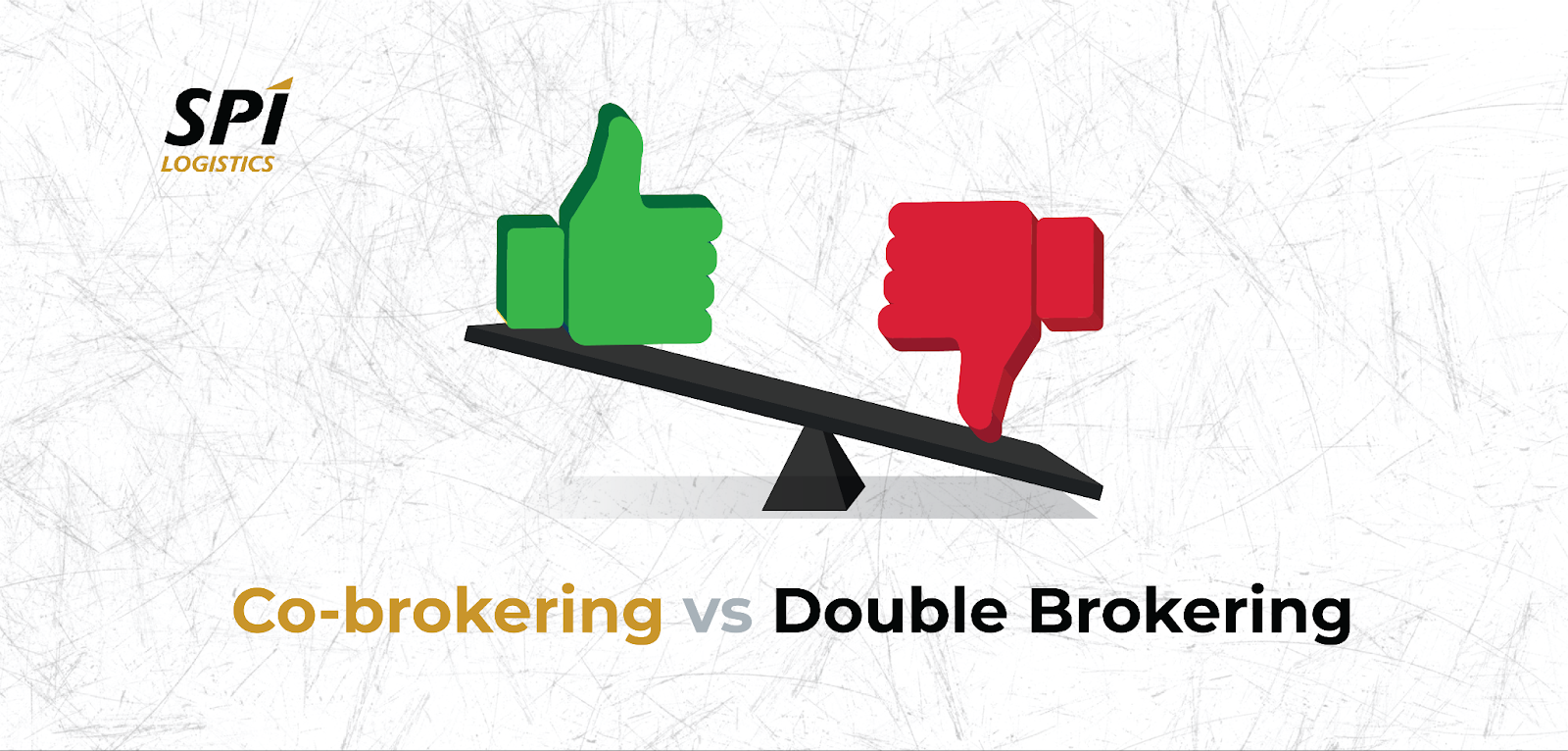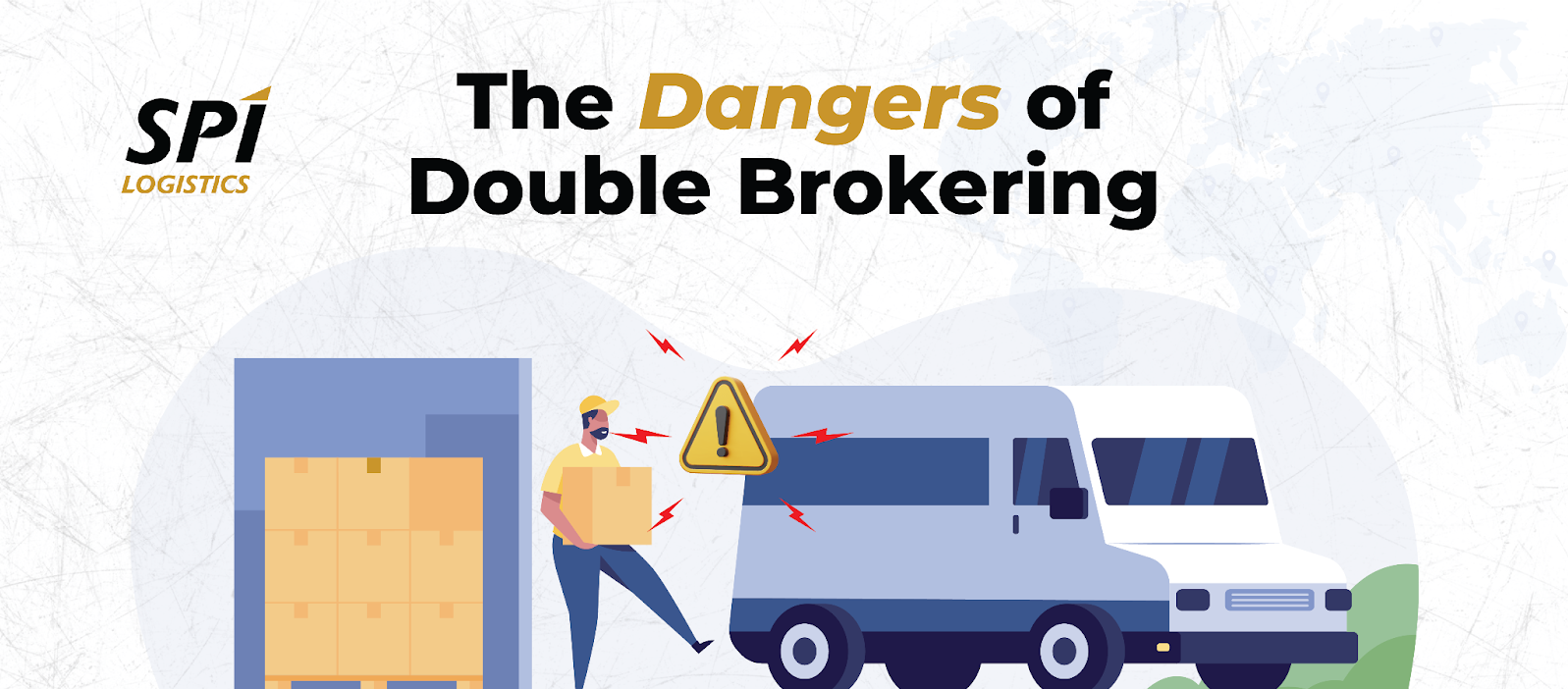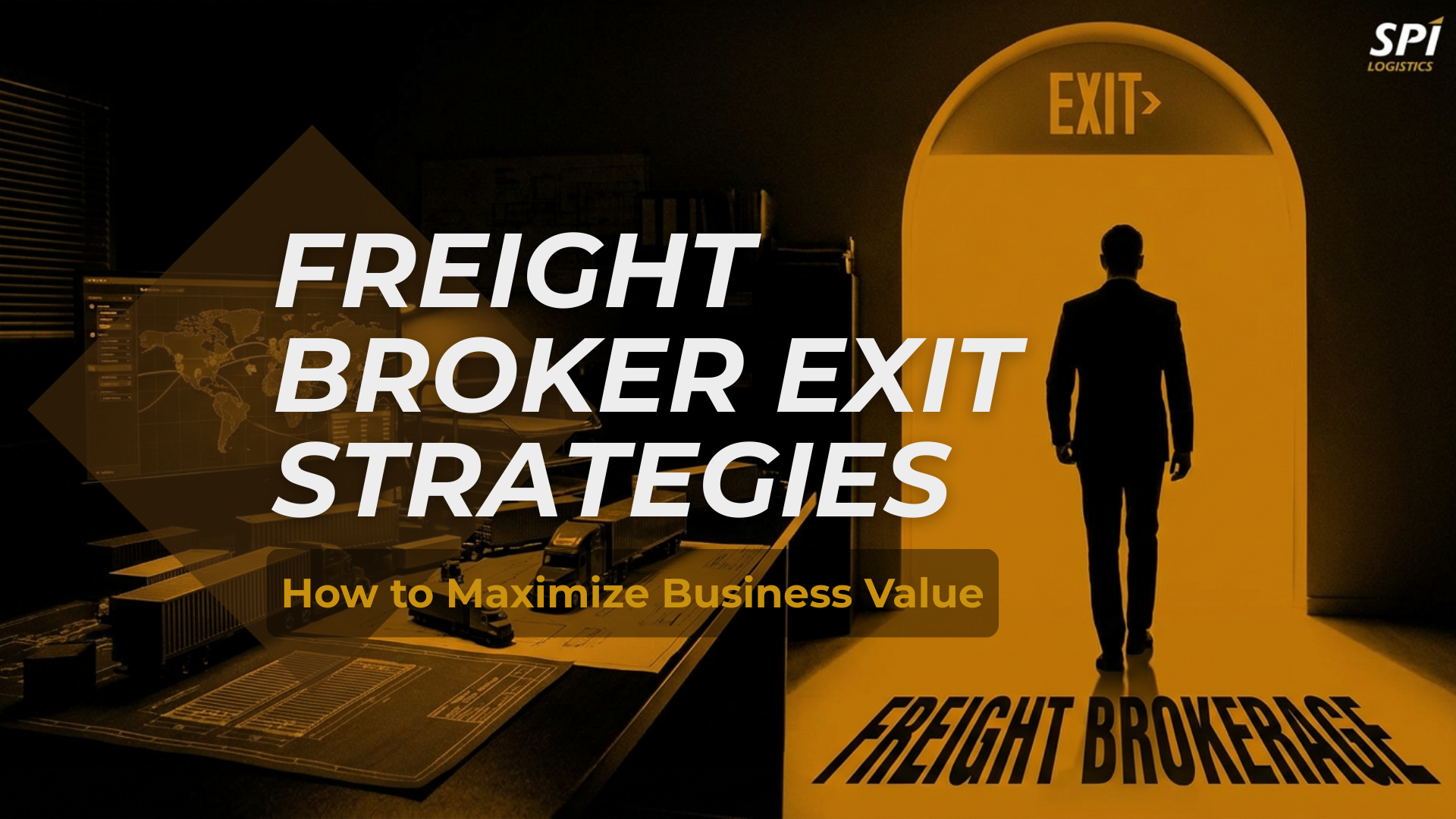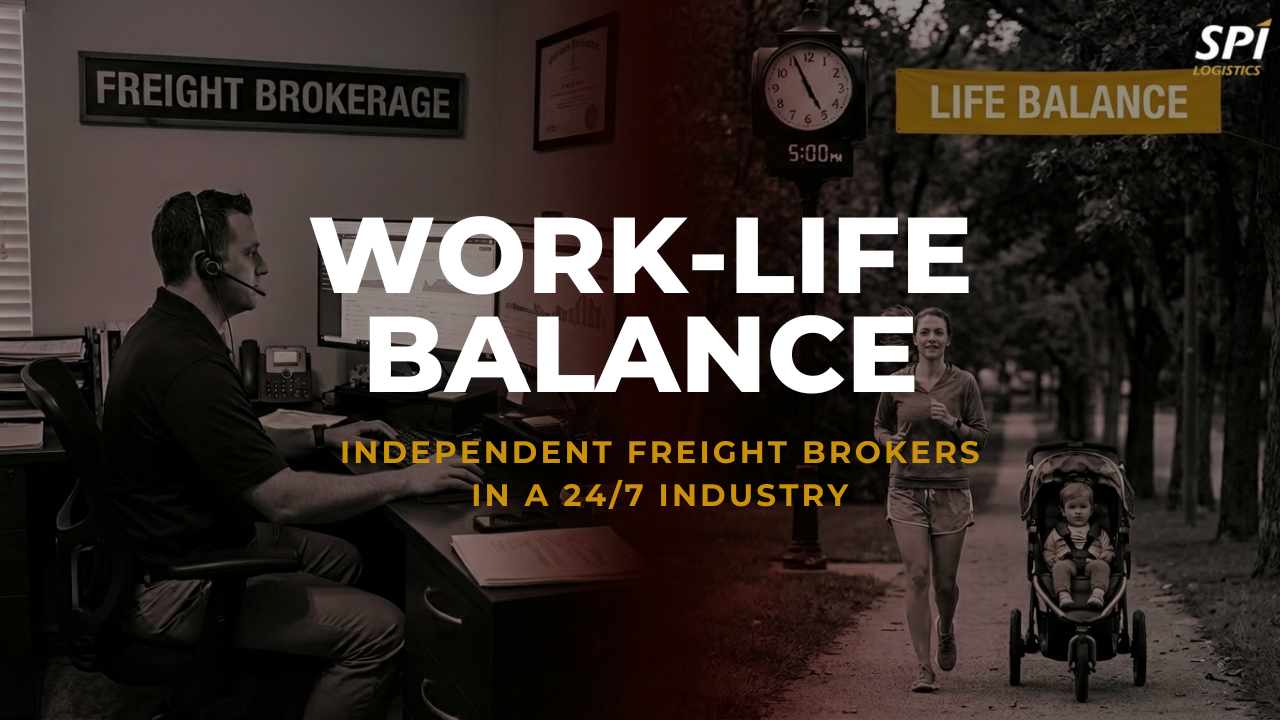Supply chain issues, inflation, and a diminishing workforce have resulted in a rise in fraud in America’s transportation and logistics industries. One of the most prevalent—and costly—frauds that affect the logistics industry today is the double brokering scheme. Read on to learn how the double brokering scheme works, the impacts that the scheme has on the industry, the penalties for double brokering freight, the steps you can take to stop double brokering and the ethical, legal practice that you can use instead of double brokering to maintain your business’s reputation, build beneficial networks, increase your credibility, and stay in good standing with the Federal Motor Carrier Safety Administration.
What Is Double Brokering?
Double brokering is the unauthorized re-brokering of a load to a secondary carrier or broker. To complete a double brokering scheme, a fraudulent freight broker applies for a motor carrier (MC) number, uses the MC number to book a shipment with a third-party logistics brokerage, and then uses the documents that the third-party logistics brokerage provides to pose as a third-party logistics brokerage themself and pass the shipment off to another carrier that will deliver the shipment to its destination.
Double brokering schemes cost the transportation industry over $100 million each year due to fraud. In a double brokering scheme, a broker accepts a load from a shipper at a low rate and then resells the load to a carrier at a much higher rate. The carrier then brokers the load out again to a second broker, who sells the load to a trucking company to ship it to its destination.
Impacts of Double Brokering on Shippers

Double brokering schemes compromise the quality of shippers’ services. When loads are double-brokered, shippers cannot ensure that shipments will be delivered to their destinations in good condition or within the timelines they have established with their customers. Shippers also lose insurance coverage on shipments that have been double-brokered because the policies only insure loads that the initial broker transports.
When a shipper’s load is double-brokered, they can’t rely on the primary broker to track the shipment to its destination, which increases the likelihood of miscommunications during transport. If a shipper’s customer issues a complaint because their shipment hasn’t been delivered on time, the shipper risks damaging their reputation, losing credibility, and losing potential future service with their customer because they can’t track shipments that have been double-brokered.
Impacts of Double Brokering on Freight Brokers
Freight brokers who double broker their loads risk damaging their reputations and losing their standing within the market. Partaking in unethical practices such as double brokering can damage brokers’ relationships with their clients, leading to lost revenue and making it difficult for them to secure new clients.
Double brokering penalties may damage a freight broker’s reputation and impede their ability to operate their business. Freight brokers who are caught double brokering their loads may be out of compliance with industry regulations and may have penalties imposed on them by regulatory bodies within the industry, including the Federal Motor Carrier Safety Administration (FMCSA). A freight broker who is found to be non-compliant with industry regulations may be monitored more closely by regulatory bodies, face fines, and have their broker’s license suspended or revoked.
Freight brokers who have double-brokered their loads remain financially responsible for the shipments. In addition to paying for overhead expenses, insurance premiums, and payouts for potential damages or losses, freight brokers who double-broker may need to pay legal fees or higher insurance rates.
Impacts of Double Brokering on Carriers
Carriers who are involved in double brokering schemes, whether intentionally or unintentionally, risk losing credibility within the logistics industry. Potential clients who learn that a carrier has been involved in a double brokering scheme may hesitate to work with the carrier, leading to the carrier receiving fewer job offers or low-quality job offers. The loss of credibility caused by double brokering may impact carriers’ finances and ability to grow their businesses because brokers may dispute the carrier’s rates or claims of late payment or non-payment after discovering the carrier is involved in double broker schemes.
Carriers who double broker loads may also face legal penalties, including fines, lawsuits, and the loss of their operating licenses. These legal penalties may damage a carrier’s reputation and relationships, make it difficult for them to find new business, or result in a carrier losing their business altogether.
Is Double Brokering Illegal?
Double brokering loads is unethical and illegal. A contracted freight broker is obligated to pay the carrier that actually completed the shipment. A double brokering scheme becomes a crime when the brokerage firm that was contracted by the shipper receives payment but does not pay the carrier that actually hauled the brokered loads to their destination.
Penalties for Double Brokering
Freight brokers who are caught double brokering their loads can face penalties imposed by the Federal Motor Carrier Safety Administration, including fines, licensing penalties, and legal action.
Civil Penalties
The Federal Motor Carrier Safety Administration (FMCSA) imposes civil penalties on brokers who double broker freight. According to MAP 21—a set of laws implemented in 2016 that prohibit freight brokers from rebrokering their loads—brokers who participate in double-brokering schemes may be required to pay at least a $10,000 fine per incident for contributing to a double-brokering scheme depending on the severity of the broker’s violations of FMCSA regulations.
Licensing Penalties
Freight brokers who participate in double brokering schemes risk having their licenses suspended or revoked by the Federal Motor Carrier Safety Administration. If a freight broker’s license is suspended or revoked, they can no longer legally operate as a broker.
Legal Action
Customers whose freight has been double-brokered may pursue legal action against the broker to seek compensation for damaged cargo, financial losses, or breach of contract.
Double Brokering Warning Signs

Shippers, carriers, and brokers can protect themselves from double brokering schemes by recognizing the following warning signs:
- The carrier or original broker does not provide contact information, or the shipper cannot contact them using the contact information they’ve provided.
- The broker refuses to provide their motor carrier numbers to the customers, carriers, or other brokers during transport.
- The broker charges unusually high rates.
- The broker or carrier requests unusual payment methods.
- The carrier cannot provide detailed information about the load.
- The carrier’s company is not listed on the bill of lading.
- The broker’s information doesn’t match the information provided by a search of the FMCSA’s public database.
- A carrier has had zero inspections and has less than three months of authority.
- A carrier has only one truck, and the truck’s VIN doesn’t match the information on file.
- A generic email domain, such as a Gmail address, is used rather than a company domain.
How to Mitigate Double Brokering

Freight organizations need to vet their brokers carefully and track their loads to prevent double brokering of their freight. Organizations can follow these steps to mitigate double brokering and prevent damage to their finances, reputations, and customer base.
Establish Strong Relationships with Carriers and Brokers
Establishing and maintaining strong relationships with carriers and brokers who are known to work ethically can lower the risk of loads being double-brokered. Carriers and brokers who have proven themselves to be trustworthy and reputable won’t risk jeopardizing their reputations and good standing by taking part in illegal practices like double brokering their loads.
Research and Vet New Brokers and Carriers
Before working with new brokers or carriers, freight organizations need to carefully research their reputations and pasts, check their references, and review their licenses and credentials. Carefully researching and vetting new brokers and carriers helps freight organizations ensure that they are trustworthy, diligent, and reliable.
Maintain Open Lines of Communication
Freight organizations need to maintain with their brokers, carriers, and customers to ensure that freight is not double-brokered. Organizations should have contracts that clearly describe the expectations, responsibilities, and restrictions that their carriers and brokers need to follow. The contracts should explicitly prohibit re-brokering freight without consent.
Organizations should also check in with their carriers and brokers regularly to receive updates on the status of shipments. Encouraging transparency between brokers, carriers, freight organizations, and customers discourages double brokering and helps resolve potential issues in transport before they become liabilities.
Use Technology to Track Shipments
Using technology to track shipments can deter brokers from selling their freight to another company without authorization from the shipper. Freight organizations can monitor their brokers and carriers’ locations as well as the location of the freight to ensure that the shipments are only being handled by authorized parties and the shipments reach their destinations in a timely manner.
How to Report Double Brokering Schemes

Double brokering schemes not only damage brokers’ reputations but also harm the entire logistics industry. Freight organizations, brokers, and carriers can report double brokering schemes to the proper authorities and help protect others from future double brokering schemes by following these steps.
- Gather Evidence
The first step to reporting a double brokering scheme is gathering evidence that the scheme has occurred. Collect any financial documents and records of correspondence between your business and the fraudulent broker, including your rate confirmation documents, text messages, emails, other communication records, invoices, receipts, banking statements that list transactions with the brokers, and other relevant documentation. Gathering documentation and evidence of your interactions with the double broker will help you prepare for the reporting process.
- Identify All Involved Parties
Once you have gathered documentation and evidence of the double brokering scheme, you need to identify the legitimate and illegitimate brokers and carriers that were involved in the scheme so you can report the illegitimate brokers to the proper authorities and industry groups if necessary. This can be difficult because the double broker may have misinterpreted themself or stolen the identity of a legitimate carrier or broker.
- Contact the Brokers
Once you have identified the parties that were involved in the double brokering scheme, you need to verify the names of all of the brokers that are involved in the scheme and contact the double brokers. The double brokering scheme may have resulted from miscommunication between the involved parties rather than a case of fraud. Communicating with the alleged double brokers can clear up any confusion between your company and the broker, address concerns about the broker’s process, and develop a plan to resolve the issue without pursuing legal action.
- Notify Your Insurance Company of the Scheme
It’s important to alert your insurance company to a possible double broker scheme as soon as you suspect a shipment has been double-brokered. Double-brokered loads that are damaged in transport may not be covered by your insurance.
- Report the Activity to the Authorities
After you have contacted your insurance company, you should report any suspected double brokering schemes to the Federal Motor Carrier Safety Association by filing a complaint on the FMCSA’s website. Be sure to provide the FMCSA with the documentation you collected as evidence that a double brokering scheme has occurred.
- Report the Activity to Industry Groups
Because double brokering schemes can damage the reputation of the entire trucking industry, it’s important to notify your local and national trucking associations and brokering associations of the double brokering scheme so they can ensure that their members avoid working with the fraudulent brokers.
- Take Legal Action Against the Brokers
After you’ve reported the fraudulent activity to the authorities and trucking associations, you should contact your lawyer to discuss the possibility of pursuing legal action against the double brokers. If your company has suffered large financial losses as a result of the scheme, this step is especially important.
- Invest in Trucking Software as a Preventive Measure
Using a trucking management system and trucking management software can help you deter your brokers from re-brokering their loads. Trucking management software can also help you verify that your loads are being transported by brokers and carriers that you have authorized to handle them.
Double Brokering vs Co-Brokering

Co-brokering is a legal practice that allows multiple brokers to partner with each other to transport a load to its destination with a shipper’s consent. Unlike in a double brokering scheme, co-brokering requires that all involved parties communicate with each other and receive consent to transport a load to its destination.
Co-brokering contracts are mutually beneficial agreements that are carefully planned and monitored. When a load is co-brokered, the shipper agrees to use multiple brokers to transport a load, and all brokers and carriers enter into a contract that states the carriers’ vetting qualifications and outlines each parties’ liabilities, insurance requirements, and payment terms.
Each broker in a co-brokering agreement is chosen because of their individual strengths, capabilities, and connections. For instance, if a broker does not have the resources they need to transport a load, such as specialized trucks, they can reach out to a broker with a larger network and form a co-brokering agreement to have the second broker use their network of resources to help transport the load to its destination.
A co-brokering agreement may also be used when a load needs to be transported across multiple national borders. Specific brokers may be chosen to transport the load in each country because of their licenses and knowledge of the country’s transport laws and regulations.
Unlike the financial agreement of a double brokering scheme, which leaves the contracted broker responsible for paying the unauthorized carrier and may result in double payment and financial losses, a co-brokering agreement requires that a shipment’s profit margin is equally divided between all of the brokers who were involved in the agreement.
Co-brokering makes shipping safer and more efficient than double brokering by allowing multiple brokers to use their strengths and licensed capabilities to transport shipments. Forming co-brokering agreements also encourages brokers to make connections with brokers outside of their organization. These relationships increase trust and credibility between brokers and discourage double brokering schemes by promoting safe, legal collaborations within the logistics industry.
Conclusion
Double brokering schemes pose a significant threat to the credibility of the logistics industry. The schemes harm the reputations, finances, and partnerships of all involved brokers, carriers, and shippers and damage their relationships with current and potential customers. To learn more about how you can identify double brokering schemes and the steps you can take to stop double brokering scams before they damage your business, watch the interview that Trey Griggs conducted with Mark Funk, our director of logistics.




